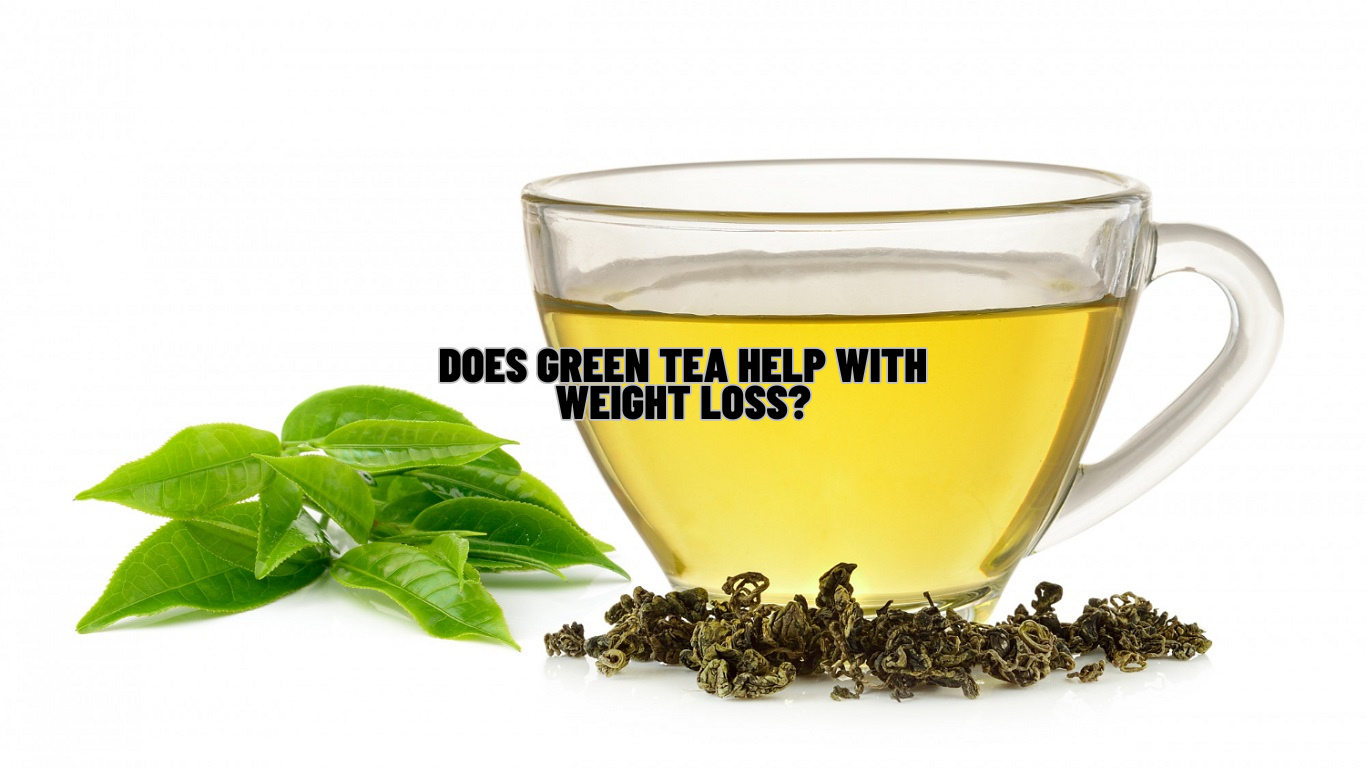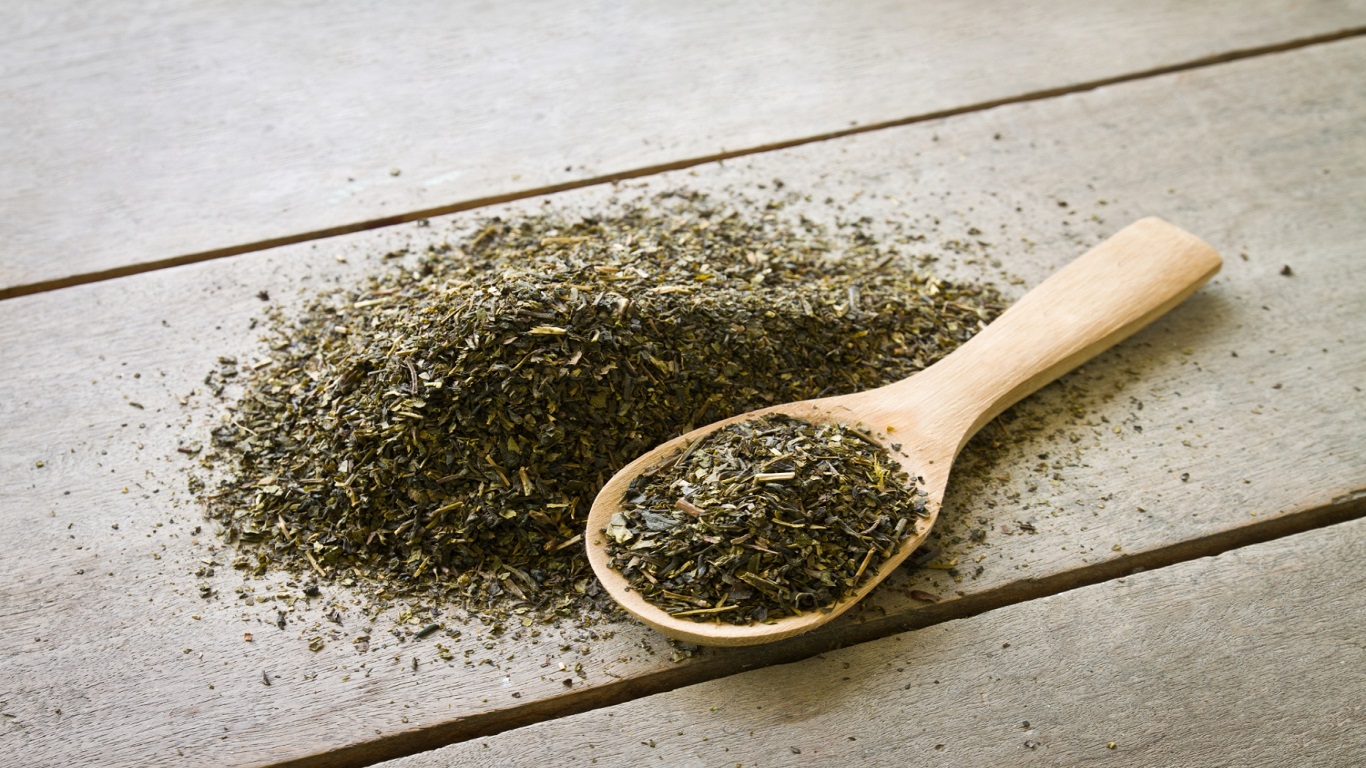Does Green Tea Help With Weight Loss? Know Science

Green tea is one of the top things that comes to mind in a lean body exchange. While most people in the country embrace this beverage because of its amazingly calming effects, many also appreciate its numerous health benefits. One such health gain of green tea is believed to be weight loss.
Packed with antioxidants and caffeine, among several other plant compounds, green tea is claimed to influence various processes associated with body weight, such as reducing stress, improving metabolism, boosting mood, and more. This is probably why many fat burners have included it as one of their key ingredients. In most cases, though, the fat-burning effects of green tea have been shown in its extract form rather than a beverage, probably because tea extracts hold higher concentrations of antioxidants than the drink.
Nonetheless, the important question is – how does green tea support weight loss? Let’s look at the various pieces of evidence to understand how green tea helps you manage weight and influences the various factors of weight loss.
What Is Green Tea
Green Tea, although it gives a greenish-yellow colour when brewed, comes from the same plant as its black counterpart – Camellia Sinensis. The only thing that sets them apart is the way they are processed. As a matter of fact, green tea doesn’t undergo much processing at all, which is why it retains its fresh green colour. On the other hand, the colour of black tea is because of its fermentation process, which also gives it a strong flavour.
There are dozens of health benefits associated with green tea, and its use as a traditional therapy goes back centuries. Originating in China, this simple yet powerful herb was used to treat various issues like headaches, stress, anxiety, and even rheumatoid arthritis disorders.
Present-day scientific research has found several more benefits of consuming green tea, weight loss being one of them. After all, it is just fresh green tea leaves boiled in water- a drink you can hardly make a mistake with!
Let’s look at the various studies that have connected green tea and weight loss.
Green Tea And Its Weight Loss Evidences

After extensive research on green tea’s influence on body weight, We found numerous ways green tea can help you lose weight. It has been proven to:
Green Tea’s weight reduction capability is attributed to two main things- caffeine and its antioxidant compounds. However, the caffeine in green tea is hardly one-third (12g per 100 g tea) of what coffee has (40g per 100g coffee). Nonetheless, it does have some contribution to weight management, although green tea truly stands out because of its antioxidant contents.
Below, we have scientific evidence on the multiple ways green tea and its constituents aid fat loss:
Caffeine For Weight Management
Study after study has shown how caffeine influences several body processes and factors, thus helping you shed those extra pounds.
For instance, we have a major study here that shows caffeine consumption raises internal body temperature, thus promoting thermogenesis. This leads to increased metabolism and energy expenditure, which is crucial for melting stubborn body fat.
In another study published in the European Journal of Clinical Nutrition, scientists have found that caffeine not only helps lose fat mass but also supports weight maintenance in the body after you lose those excess gains. One of its possible mechanisms in regulating and maintaining weight is hunger suppression. Studies show that caffeine supplementation in 84 healthy volunteers for about 4 weeks has increased satiety and reduced food intake.
Another significant study demonstrates that the ingestion of caffeine has sparked an ergogenic effect in athletes, leading to improved endurance and performance.
Antioxidants For Weight Management
As mentioned earlier, antioxidants form the major part of green tea, and the most significant of these is epigallocatechin gallate (EGCG), a catechin compound known to ignite metabolism. Consumption of green tea gives an antioxidant boost to the body, which in turn combats oxidative stress damage caused by free radicals in the body.
Catechin And Fat Oxidation
As for the weight loss effects, a clinical trial was conducted in 2007 to study the effects of EGCG on thermogenesis in overweight men. Researchers confirmed that EGCG (an antioxidant compound) in green tea can potentially increase fat oxidation in the body, thus proving its anti-obesity effects.
Another follow-up study on epigallocatechin gallate’s effect on fat oxidation further supports this finding. It confirms that ECGC combined with caffeine can have an even higher effect on fat metabolism.
It thus demonstrates that green tea, a powerhouse of antioxidants and caffeine, is a potent ingredient for burning fat and body weight regulation.
Enhances Fat Burning During Exercise
One of the reasons green tea has been included in several weight loss supplements is its ability to increase the rate of fat breakdown when you work out.
We found a comprehensive study demonstrating that green tea leads to increased fat utilization in the body and energy expenditure in both active and sedentary states when combined with exercise.
Another piece of evidence of this is a two-part study. One part involves the evaluation of the effect of green tea on fat oxidation during moderate-intensity exercise (30-min cycling exercise) in human subjects. The other part is understanding its influence on animal subjects’ insulin sensitivity. Researchers found that on consumption of green tea extract, there was a significant rise in both exercise fat metabolism and insulin sensitivity.
Increases Thermogenesis, Metabolism And Satiety
Green tea has repeatedly proved that it helps increase metabolic rate in the body thanks to the thermogenic properties of catechin polyphenols and caffeine content.
The finding from one study shows that these substances in the tea work synergistically to promote thermogenesis, thus contributing to its anti-obesity effect.
Meanwhile, another team of researchers demonstrated a solid connection between weight loss and green tea-caffeine supplementation through a clinical intervention.
In the trial, 76 overweight were given low-calorie diets for 4 weeks, along with weight maintenance for a period of three months after that. During the weight maintenance period, they were given epigallocatechin gallate – caffeine supplementation. A significant amount of body weight reduction was noted at the end of the trial period. In addition to that, the test subjects also experienced an increased amount of satiety, which helped reduce their fat mass.
Finally, we came across another study proving that green tea and its compounds (polyphenols)
can control fat absorption in the body, thus lowering cholesterol levels and reducing the chances of Hypertriglyceridemia.
Recommended Dosage Of Green Tea

Most of the studies that we have shared here have used green tea extract doses ranging between 100 – 450 mg to be effective in weight loss.
The scientific analysis by the EFSA ANS Panel suggested that the average intake of EGCG in the form of beverage ranges between 90 to 300 mg/day. The dosage goes upto 866 mg EGCG/day in case of high‐level consumption in the adult population. Most weight loss supplements use green tea dosage within the range of 100-500 mg, which falls well within the recommended amount.
Food supplements containing green tea catechins provide a daily dose of EGCG that can range between 5 and 1,000 mg/day.
Conclusion
All of the above studies and several others show a positive correlation between green tea and weight loss. The components in green tea – caffeine and particularly, the antioxidant compounds (catechins) influence various associated factors like metabolism, appetite, thermogenesis, and exercise performance, thus promoting weight loss.
Undoubtedly, green tea has anti-obesity properties, but it is also essential to understand that its effect is quite reserved. Therefore, green tea supplementation needs to be combined with a low-calorie diet and regular exercise if you want to achieve the most out of it. All-in-all, green tea is a great beverage and an antioxidant booster with diverse health benefits, and it is definitely safe when taken in recommended amounts.
